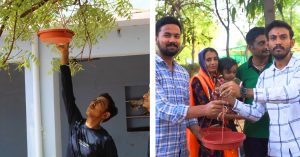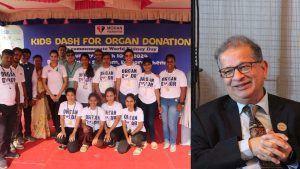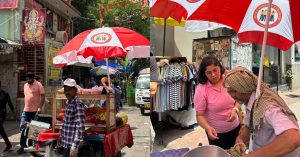With Just Rs 2000, Sponsor An Entire Year of Education for Kids of Migrant Workers
A Vadodara-based teacher Juin Datta turned her part-time social activity into a full-fledged foundation called ‘Pathshala’, offering free education, shelter, and other essentials to underprivileged children. You can help her.
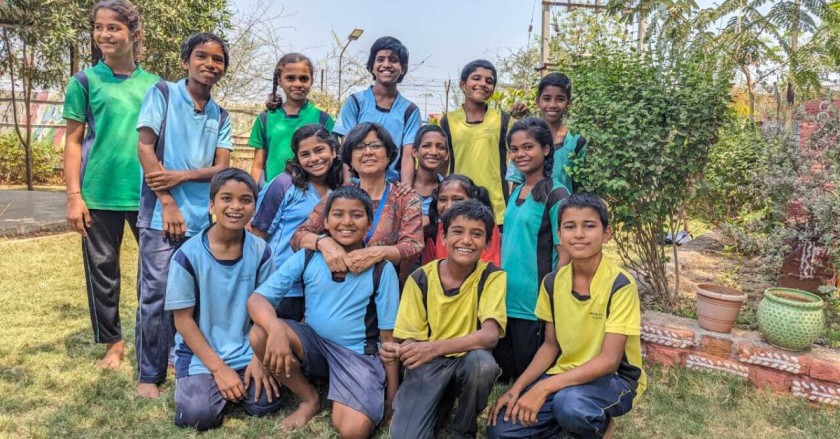
Pausing her lengthy evening routine for a moment, Ishita swiftly heads to her favourite spot: Juin Madam’s office, where she eagerly joins me on a video call. Despite the crackling sound of a poor network, her enthusiasm shines through as she exclaims, “It’s truly a blessing to be here.”
Ishita is a student enrolled at Pathshala, a foundation led by Juin Datta in Vadodara. This organisation is committed to offering free education to underprivileged children, particularly those from migrant workers’ families.
“We offer a comprehensive range of essentials to our students here — from quality education, shelter, food, and clothing to promising opportunities for the future,” she says. “There’s no stigma attached to joining school late because we operate differently from conventional schools.”
Working on the principles of project-based learning, the school eschews traditional grading systems in favour of levels. “For instance, I might be at Level 4 for Gujarati but Level 8 for math. Age isn’t a determining factor here; what truly matters is your willingness to learn,” Ishita explains to The Better India.
Ishita is just one of the 97 children residing in the hostel provided by the Pathshala Foundation. The majority of them hail from migrant worker families unable to afford quality education. Thanks to Juin’s efforts, these children now have access to opportunities for a brighter future.
More than just a ‘Pathshala’ (school)
Pathshala’s journey began a decade ago as a mobile initiative providing free education. Juin elaborates on the inception of this initiative and recounts her decade-long endeavour.
“We were a bunch of chatty ladies,” says Juin, recalling 2013, when the idea first came to her. “I was a school teacher back then and would get together with some friends from my community to have raving discussions about the world.”
The group of friends Juin refers to was a mix of teachers and other professionals who would meet periodically. “After one of such discussions, I realised that we were merely talking and not doing anything beyond that. As we were a bunch of teachers, we decided to do what we knew best — teach. So we started to go to a construction site and start teaching kids of the workers for free,” she adds.
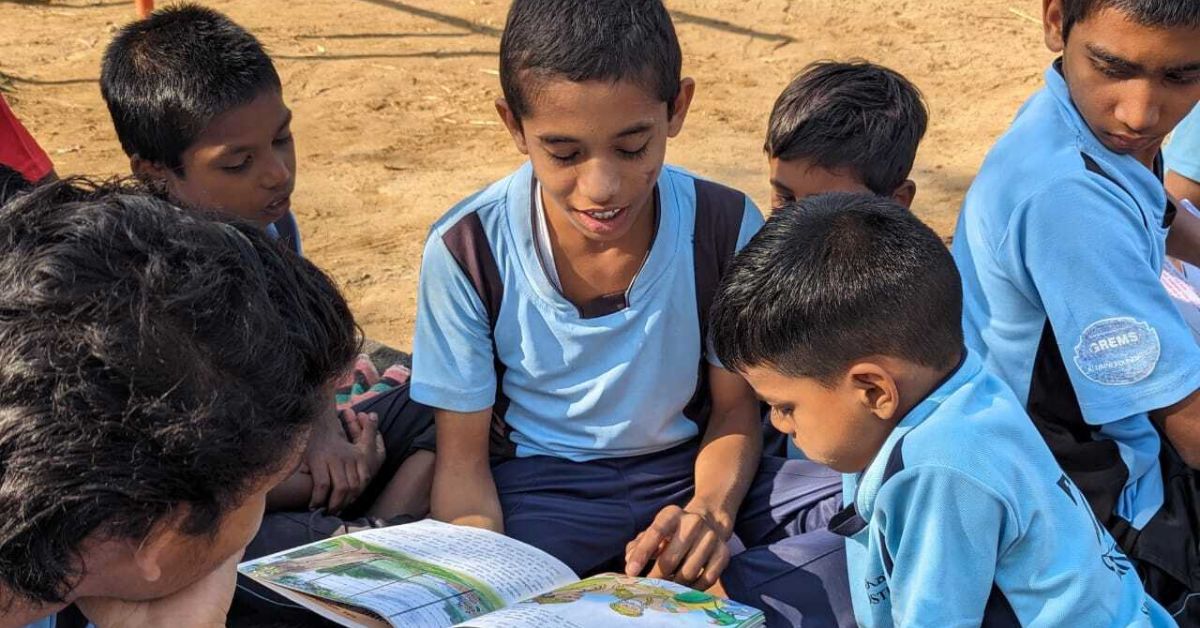
The response to their efforts was good, so the group divided their efforts and started to teach in three different locations in Vadodara. “Within some months, from a dozen kids, we went to teaching hundreds. But the problem was that every six months, these workers would move and hence the kids would be left with no education,” she says.
It was one of the students’ mothers who requested Juin to take her child under her wing and provide education as they were to migrate once more. Inspired by it, in 2014, Juin decided to resign from her job and dedicate herself to assisting underprivileged children.
“This was how the idea of a hostel was born. A very kind philanthropist from the city helped us to get a property for rent,” she says.
“The free residential school operates, unlike traditional institutions, employing a unique educational model,” Juin explains. “Given the diverse backgrounds of our students, some of whom commence their education later in life, we’ve adopted a levelled system of instruction. In our approach, a student’s level in a particular subject is determined by their proficiency rather than their age, ensuring no one feels misplaced or ashamed for joining later.”
“We also prioritise sports and project-based activities, offering opportunities for learning beyond the conventional curriculum, such as painting, judo, and karate,” she adds.
Juin goes on to explain the entire process of how a student is assigned a particular lever and how they navigate the system.
“When a child joins Pathshala, we assess their current knowledge and comprehension abilities in languages and mathematics. Based on this evaluation, we place them in appropriate levels corresponding to their proficiency. Consequently, each child studies at different levels for various subjects. Upon completion of Level 5, a student becomes equivalent to be eligible to sit for Class 8,” she informs.
From Class 8 to 12, the school adheres to the National Institute of Open Schooling (NIOS) syllabus, she adds.
Students take psychometric tests to discover their career inclinations, guiding their subject choices when they enter Class 8. This personalised method ensures their interests and strengths are considered. Alongside languages and math, students explore diverse subjects through practical experiences and research.
“For instance, recently, the students completed a board game project where they designed and created their own board games, complete with unique rules. Students are encouraged to delve deeply into subjects of their choosing and conduct in-depth studies according to their interests,” she explains.
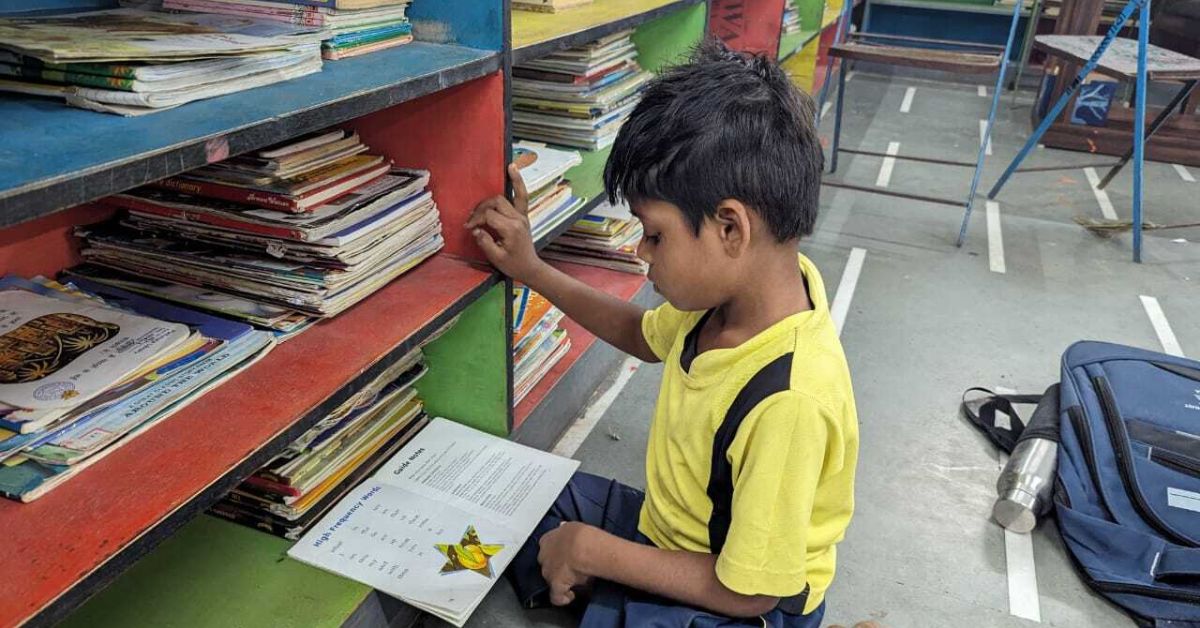
Ameen, who is currently living in Pathshala hostel and has been with Juin for over four years, shares his perspective, “The most enriching aspect of our education is a class where we learn without textbooks. We select a topic, discuss it, and learn from each other and our teachers. Moreover, our educators stress on understanding concepts deeply rather than just memorisation.”
A second chance at life
“While these kids have a safe place here to thrive, the reality of their lives still lingers,” says Jui.
She continues, “Many hail from Uttar Pradesh and travel frequently, leaving their children under my care. Yet, upon returning to their homes, these children confront challenges they shouldn’t have to face at such tender ages.”
She recalls a distressing incident during their summer vacation when she encountered one of her students begging on the streets. “Most of the children who stay with us leave for summer vacations to their homes. While we try to give them the best life here, the reality of the poverty they were born into hits hard. It was during one of these vacation days that I saw one of my students begging. It was heart-wrenching, and I felt upset. I spoke to their parents, but the mother simply told me, ‘How will they eat if they don’t beg?’” she shares.
That’s when Juin realised the stark contrast the children experience in their transition from hostel to home. It stressed the gravity of her work, as it dawned upon her that good education serves as their only ticket to breaking the cycle of poverty.
Further reflecting on the issue of hunger, Juin says, “I once had a conversation with a young boy under our care who confessed that chewing gutka (tobacco) helped curb his hunger. That statement shattered me. I couldn’t begin to comprehend the mental anguish that boy endured.”
She adds, “This is what the foundation aims to fight. It is not just about educating them but also making them independent.”
Juin explains that once the children are prepared to leave Pathshala, she assists them in acquiring vocational education to secure employment or gain admission to college for further education. “This is the only way we can ensure that these children have a good life not just at the hostel but beyond it too,” says Juin.
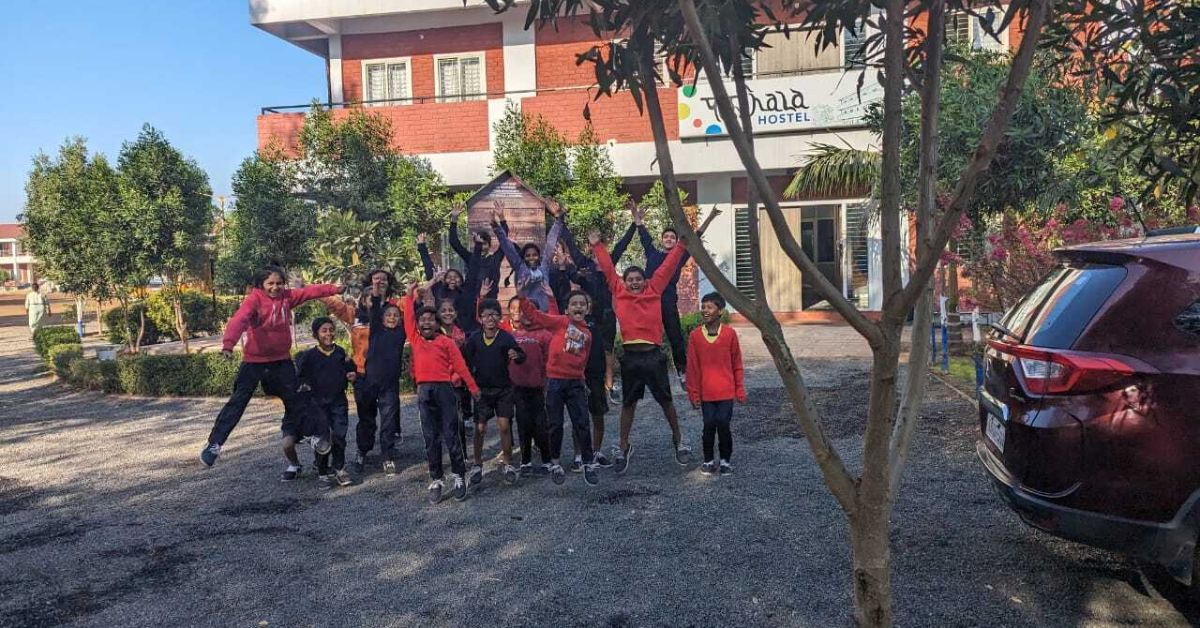
Juin also informs that they have implemented initiatives like ‘Udyam’ for skill development training and ‘Unnati’ for hands-on entrepreneurial training.
“Our policy is to support them until they achieve economic independence. Pathshala is fundamentally a value-based institution, dedicated to nurturing children’s happiness in life,” she shares.
Sejal Verma (21), one of the few students who have completed their education and moved out of the hostel, shares, “I’m currently working part-time and earning enough to support myself. I’m also pursuing a course at ITI Vadodara. However, none of this would have been possible if I hadn’t gained admission to Pathshala on time. I had passed my Class 8 exam from a Government school but did not know how to read the alphabet!”
“In many ways, I restarted my education at Pathshala. Once I completed my boards, they helped me get admitted into ITI, and I still visit the hostel. It feels like home to me, and I keep visiting the children on various occasions like festivals and school functions,” she adds.
‘We rely on the kindness of humans’
“We had only seven children with us when we started, and now, we have grown to 97 kids,” says Juin.
It was when she observed the number of children growing in the hostel that she decided to move to a bigger place. “We only had around one and a half lakh rupees on hand and were searching for funds. But our motivation to help these kids kept us going. Fortunately, we encountered generous individuals who were willing to support us. The person who rented us the initial hostel also helped us acquire the land,” she says.
Recalling the kindness of people around her, she adds, “There were times when we did not have enough money to pay for the construction. The construction leader would come up to me and say the money will come, you focus on getting the building constructed.”
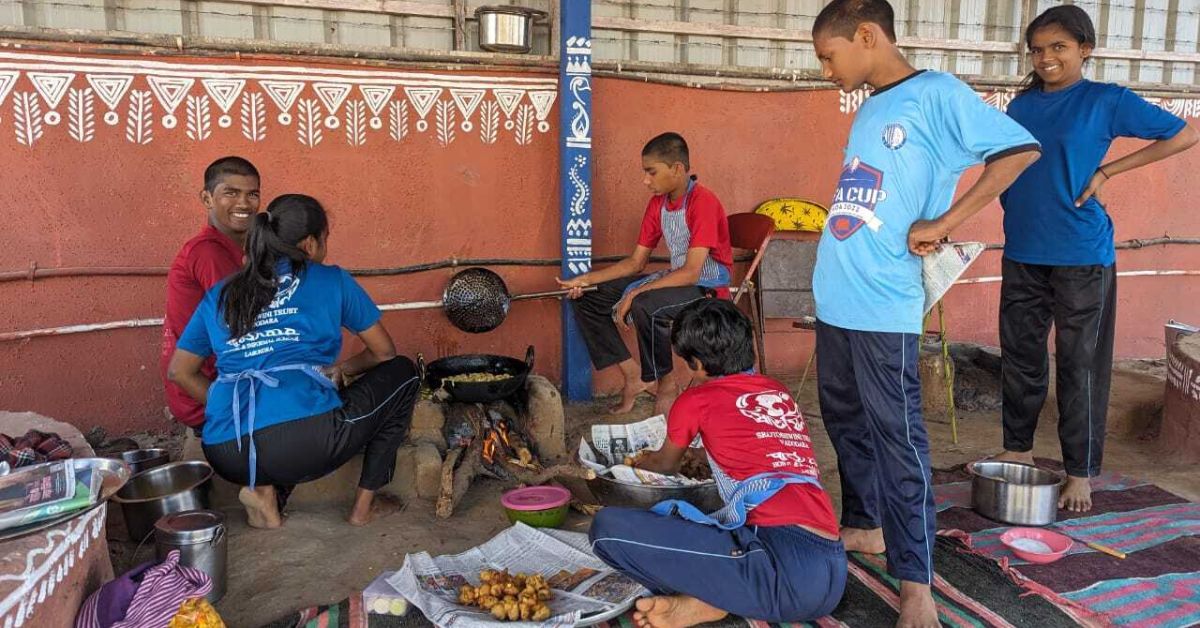
Juin emphasises that it has been with the help of such people that the hostel continues to thrive. She says, “We get donations which we rely on to earmark a yearly budget. This has allowed us to hire professional teachers and not just work with volunteers to provide the students with consistency in learning.”
“Even today, the place runs solely on the kindness of people,” she remarks.
Transforming the lives of these children doesn’t have to be Juin’s solitary journey. You too can help to educate the 97 children under her care. Sponsor one child’s education for just Rs 2,000 per year. Your donation will cover their NIOS and board exam fees.
(Edited by Pranita Bhat; All pictures credit: Anisha Roy)
If you found our stories insightful, informative, or even just enjoyable, we invite you to consider making a voluntary payment to support the work we do at The Better India. Your contribution helps us continue producing quality content that educates, inspires, and drives positive change.
Choose one of the payment options below for your contribution-
By paying for the stories you value, you directly contribute to sustaining our efforts focused on making a difference in the world. Together, let's ensure that impactful stories continue to be told and shared, enriching lives and communities alike.
Thank you for your support. Here are some frequently asked questions you might find helpful to know why you are contributing?






